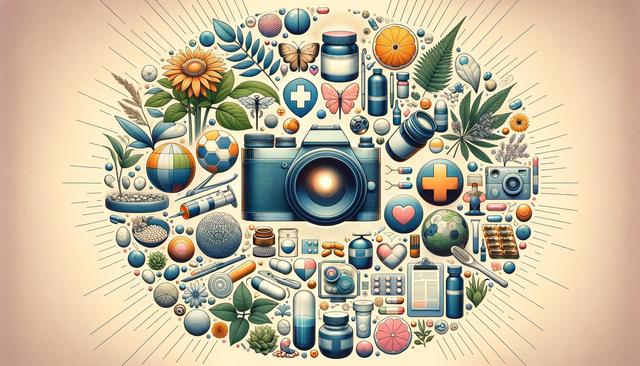Exploring Effective Treatment Options for Erectile Dysfunction
Erectile dysfunction can be a sensitive topic, but understanding the available treatment options is a valuable step toward improving quality of life.

Understanding Erectile Dysfunction and Its Causes
Erectile dysfunction (ED) is a condition that affects many men, especially as they age. It is characterized by the consistent inability to achieve or maintain an erection sufficient for sexual intercourse. While occasional difficulty is normal, persistent issues may indicate an underlying health concern. ED can result from a variety of physical and psychological causes. Common physical factors include cardiovascular diseases, diabetes, hormonal imbalances, and side effects of certain medications. On the psychological side, stress, anxiety, and depression can play significant roles in the development of ED.
Understanding the root cause is essential for choosing the right treatment. In many cases, ED is a symptom of another health issue, so addressing the underlying condition can lead to significant improvement. Men experiencing ED should consult a healthcare provider for a comprehensive evaluation, which may include a physical examination, medical history, and possibly some laboratory tests. This step is crucial to rule out any serious conditions and to tailor an appropriate treatment plan.
Lifestyle Changes That Make a Difference
Before turning to medical treatments, many men benefit from making lifestyle changes that support overall health and sexual function. These changes can improve blood flow, hormone levels, and mental well-being—all of which are vital for healthy erectile function. Some of the most effective lifestyle modifications include:
- Maintaining a healthy weight through balanced eating
- Engaging in regular physical activity
- Quitting smoking and reducing alcohol consumption
- Managing stress through relaxation techniques or therapy
These strategies not only support erectile function but also contribute to overall well-being. For instance, regular exercise improves cardiovascular health and boosts testosterone levels, while a healthy diet can help control blood sugar and cholesterol levels. Men who adopt these changes often notice an improvement in their symptoms, particularly when ED is mild or linked to lifestyle factors.
Oral Medications: A Common and Accessible Option
One of the most widely used treatments for ED is oral medication. These medications work by enhancing blood flow to the penis, making it easier to achieve and maintain an erection in response to sexual stimulation. They are generally easy to use and have been shown to be effective for many men. However, they are not suitable for everyone and may interact with other medications or underlying conditions. It’s important to speak with a healthcare provider before starting any new treatment.
Some considerations when using oral medications for ED include:
- Timing of the dose in relation to sexual activity
- Possible side effects like headaches or digestive issues
- Interaction with medications used for heart conditions
In cases where oral medications are not effective or appropriate, other treatments may be explored. Despite their popularity, these medications are just one part of a broader range of ED management strategies.
Non-Oral Therapeutic Options
For men who do not respond well to oral medications or prefer alternative approaches, there are several non-oral treatments available. These include injectable medications, vacuum erection devices, intraurethral suppositories, and hormone therapy. Each of these methods works differently but aims to achieve the same result—improved erectile function.
- Injectable medications are administered directly into the penis, leading to an erection within minutes
- Vacuum erection devices use suction to draw blood into the penis and a constriction ring to maintain the erection
- Hormone therapy may be considered if ED is linked to low testosterone levels
These options can be effective for men with more complex cases of ED or those who are unable to take oral medications. However, they require more planning and, in some cases, training to use correctly. Consulting with a healthcare provider can help determine which of these treatments might be suitable based on individual health needs and preferences.
Psychological Support and Therapy
In many instances, ED has a psychological component that may either cause or exacerbate the condition. Stress, relationship issues, anxiety, and depression can significantly impact sexual performance. In such cases, addressing the psychological aspect is just as important as treating the physical symptoms. Therapy and counseling can provide a safe space to explore these issues and develop coping strategies.
Common therapeutic approaches include:
- Cognitive-behavioral therapy (CBT)
- Couples counseling to address relationship dynamics
- Mindfulness and stress-reduction techniques
Psychological support can be particularly beneficial when used in combination with medical treatments. By addressing both the emotional and physical aspects of ED, men often experience improved outcomes and greater confidence. Seeking help from a mental health professional does not indicate weakness—instead, it represents a proactive step toward reclaiming one’s sexual health.
Conclusion: Finding a Personalized Path to Treatment
Erectile dysfunction can be a challenging experience, but it is also highly treatable. With a range of options available—from lifestyle changes and oral medications to advanced therapies and psychological support—men can find an approach that suits their individual needs. The first step is seeking professional guidance to understand the underlying causes and explore appropriate treatments. By taking action and staying informed, individuals can improve not only their sexual health but also their overall quality of life.